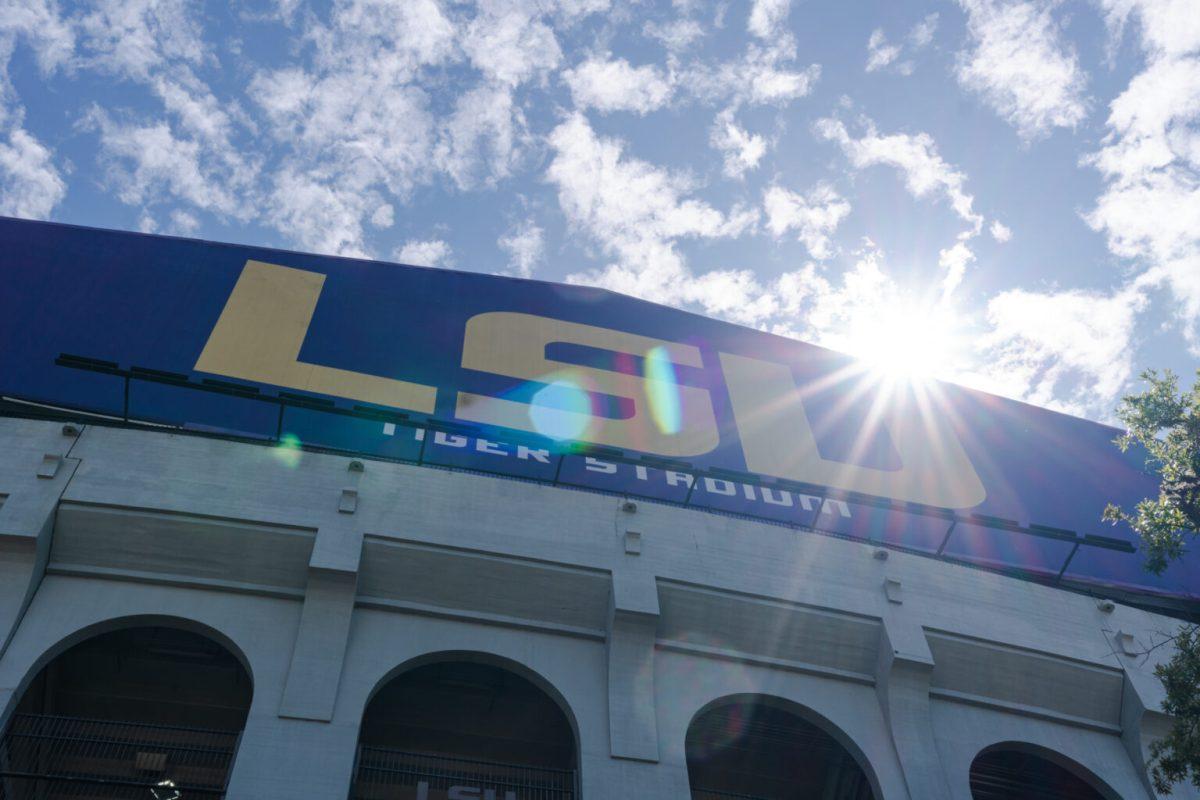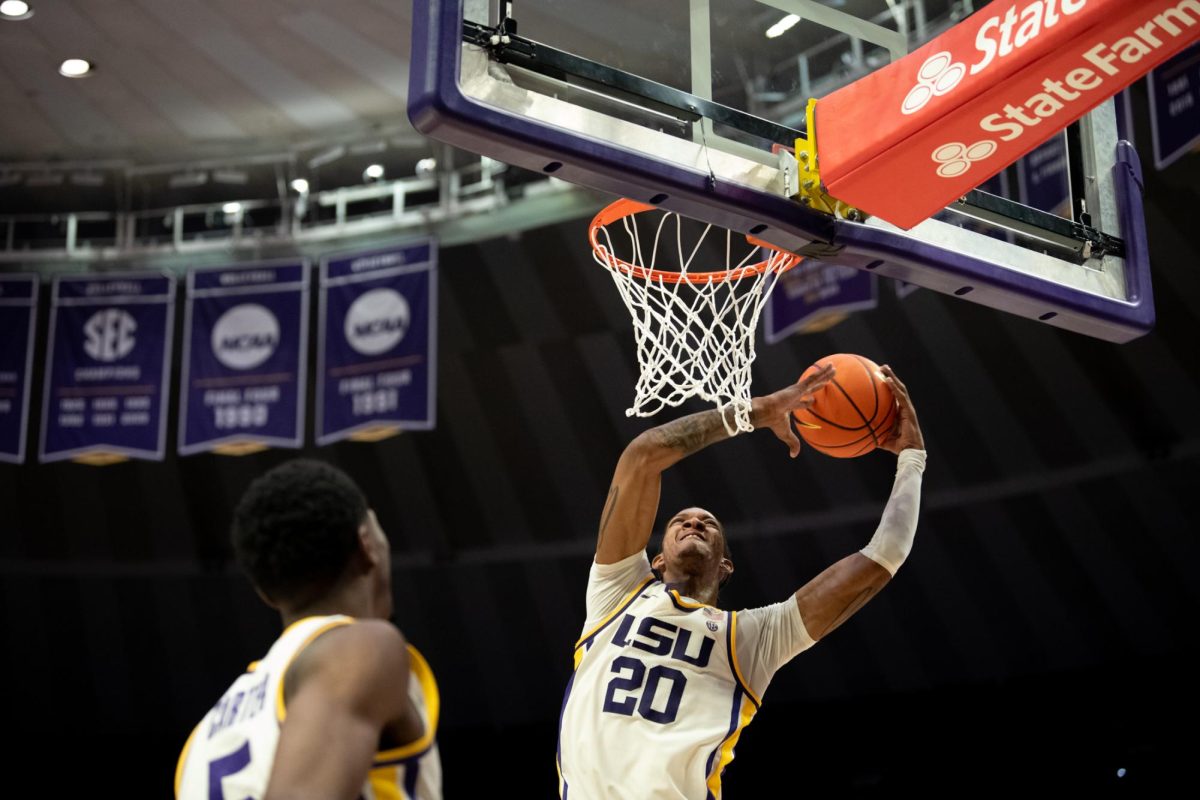I chose the Lady Tigers’ head coach Pokey Chatman for my final weekly Q & A for the semester. Taking over just last year for former head coach Sue Gunter, Chatman seems to be on our way to adding to the list of legendary coaches — leading the team to the Final Four in New Orleans in her season as interim coach. Through her beliefs and mindset, she has a unique way of thinking and living that she mixes into her coaching style.
Tabby Soignier: Do you feel you have big shoes to fill following coach Sue Gunter?
Pokey Chatman: I don’t really look at it like that since I don’t think it’s possible to fill those shoes. I think you just learn as much as you can from someone like Sue, soak it up and sprinkle a little bit of yourself in there and just move on. She’s a pioneer to me. She’s a legend. She’s a Hall of Fame member. I was just lucky to be with her for 17 years. I don’t look at it in that sense because I don’t think it’s possible.
TS: Many head coaches have to work their way up to a nationally prominent team. Can you put your situation into words?
PC: I understand that I was lucky, but not in the sense that most people would think. I was lucky in a sense that I was here with Sue for 17 years — four as a player, 13 as an assistant coach. I think what’s unique about that is most people leave and go on to better experiences somewhere else, but with Sue she is so established. She is an Olympic coach. She coached Pat Summit. Pat Summit was her assistant. She’s in all these Hall of Fames and she has zero ego so she allows you to grow without leaving.
TS: Describe the past year.
PC: It is a unique situation because it’s not something you can put it into terms of how it happened. We’re in the middle of the season — Jan. 4 — Nick’s winning a championship in New Orleans and we’re playing a team here in Baton Rouge. Your natural reaction is just to adjust. For the whole season, you just adjust to what was going on and take a step back and it just continued and I think it had to. I think what happened was that I am not a new coach with a new system at a new university and that made it a little bit easier for me. But, there are always the natural changes — a couple of offices down, I get to talk to [the media] a little bit more and a little bit more criticism.
TS: Have you seen a change in your players since being ranked No. 1?
PC: No, but that’s good. Kids are unique. They understand that the final ranking is the most important one. We watched the Tennessee game and Tennessee lost, but that was just another day for us because we had two more games. A No. 1 ranking does not change the way we prepare for practice and it didn’t change the way we played against North Texas.
TS: Is there extra pressure with the ranking?
PC: I get that question all the time and I don’t think there is one outside source or entity or anything that can put more pressure on Pokey, than Pokey. That’s just the nature of what we do. You’re never going to be satisfied. You’re always going to want to improve, and the improvement has been gradual. Why not want to improve on last year? That has zero to do with the ranking — it has to do with our potential.
TS: What’s the best advice you have ever received?
PC: I think what I pride myself on and the number one thing is regardless of what you do it’s all about relationships. It sounds so simple, but I can relate it specifically with to what happened with us — if I don’t have a relationship with Sue then I don’t have the leverage to be able to step in and take over the program. If I don’t have the relationship with those players and elevate their game. I can have all the basketball knowledge in the world, but if I can’t relate to my players from the standpoint of my relationship with them — and when I say relationship good, bad, different, tough love, the whole nine yards — but from a respect standpoint. It’s all about relationships.
TS: What is your proudest moment as a coach?
PC: There’s so many to just put into one. I hope I haven’t experienced it yet. There are several different things that other people wouldn’t point to — the Georgia game and the win, the Final Four in New Orleans — but there are a lot of other things like players graduating early. Temeka Johnson graduated in three and a half years. There’s so many, but probably more in mind than basketball. I mean you’re excited when you make history, but you’re excited when you see a player sit out a season because of academics and then graduate early. It’s so phenomenal and there is so many stories like that. You look at Scholanda Hoston — she’s married, she is a mother, a wife, a student athlete and she excels.
TS: What do you feel was your biggest accomplishment as a player?
PC: I don’t know if this is an accomplishment, but I think I had a knack to relate to my teammates. It’s something I take pride in because it works with everything — I relate to my secretary, my trainer, the doctors, the staff. And I emphasize it. It’s not about what we teach, it’s about what we emphasize. I just think I had a knack with that as a player.
TS: How often do you look at the NCAA Semifinalist trophy?
PC: I haven’t looked at it a lot to be honest with you. I think for me I put it up there as a reminder of how far we have come — seventeen years ago when I got here until now. That [trophy] is not about just last year’s team. It’s about the foundation and the respect of Sue Gunter. She didn’t just get a team to the Final Four. She got a staff to the Final Four. People always say ‘it was bitter sweet because Sue couldn’t be there.’ And I say ‘you got to be kidding. Sue got us ready and we got a team ready.’ That to me is unique.
Q&A with Soignier
December 2, 2004






